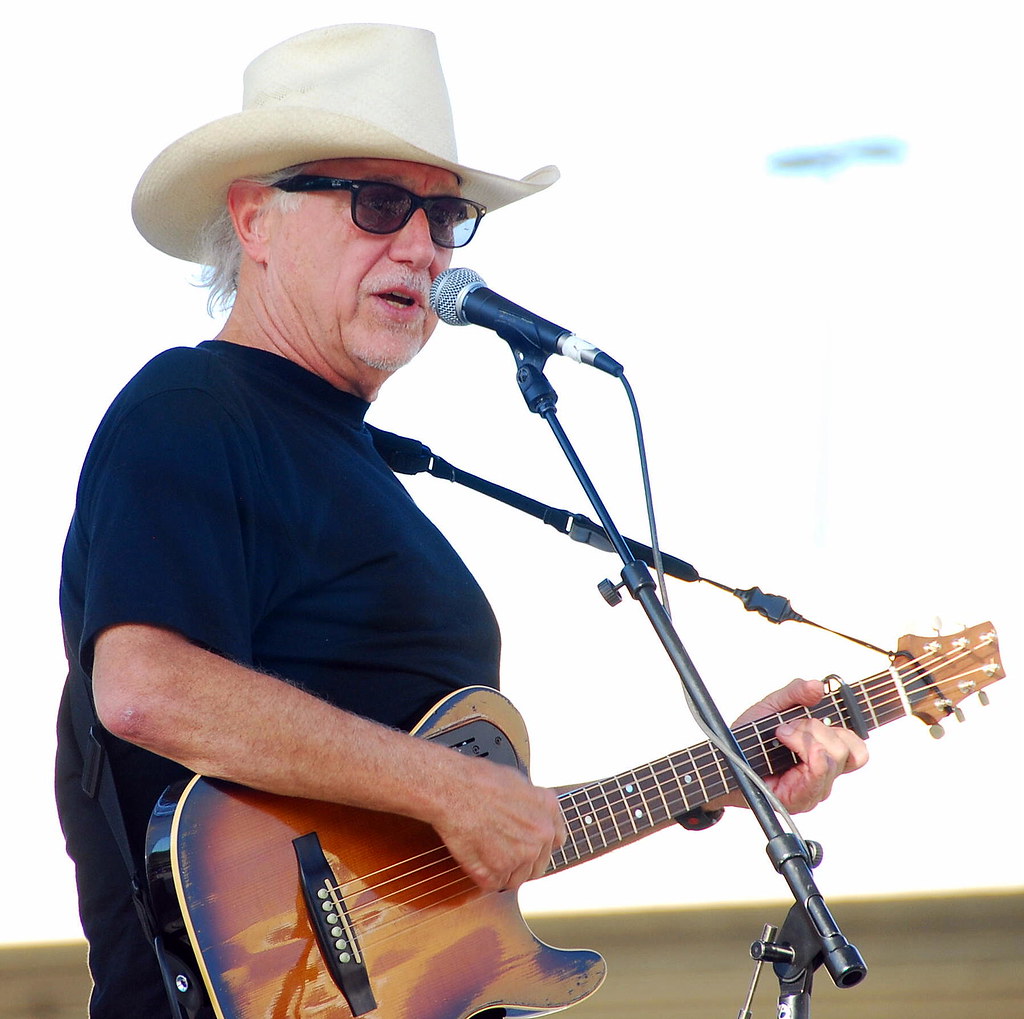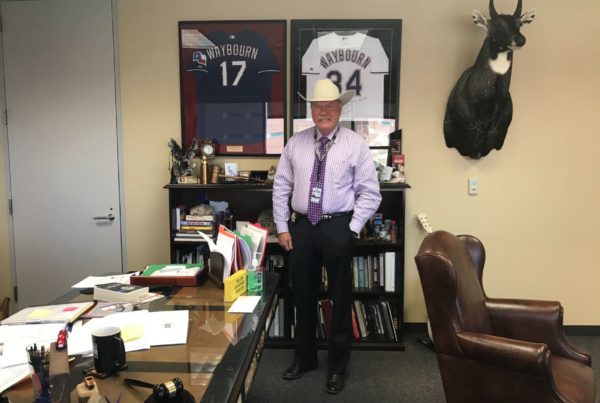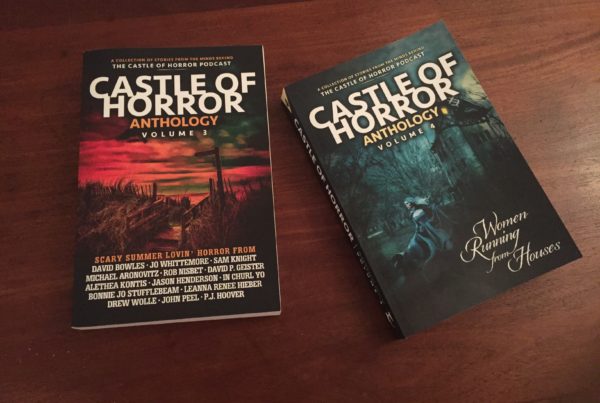He was born Ronald Clyde Crosby in the Appalachian region of New York. He spent time in Greenwich Village, the Florida Keys and New Orleans, but it wasn’t until Jerry Jeff Walker landed in Austin that he felt truly at home.
Walker told Rolling Stone magazine in 1974, “Texas was the only place where they didn’t look at me like I was crazy.”
The famed singer-songwriter passed away in Austin on Friday after a battle with cancer. He was 78.
John T. Davis is a Texas-based journalist, author and former publicist for Jerry Jeff Walker. He wrote about Walker in a remembrance for Texas Monthly. Davis told Texas Standard that “Mr. Bojangles,” the song for which Walker is probably best known, came out of a night spent in a New Orleans drunk tank.
“He wound up sharing a cell in this drunk tank with another street performer who called himself ‘Bojangles,'” Davis said. “Jerry at the time was experimenting with internal rhyme. He’d been reading a lot of Dylan Thomas. … The real-fire resonance of it really struck everybody that heard it.”
Davis says Walker drew inspiration from everyday life.
“I think his songs are so relatable, because they sort of touch on people’s everyday experiences,” Davis said.
Walker was drawn to Texas by the 1970s music scene he found while passing though – a fusion of country, rock and blues.
“He found it a real creative, fermented kind of scene that he could ingratiate himself into and become a part of,” Davis said.
In Texas, Walker also found the company of musicians who helped broaden his playing style. The Lost Gonzo Band that he was a part of included future country stars like Michael Martin Murphy, Gary P. Nunn and Ray Wylie Hubbard.
“They gave Jerry a lot of elbow room in terms of what he could do musically,” Davis said.
Davis said Walker, who liked to have a good time, prided himself on being a musician first.
“No matter how late the party went the night before, there was never a day that I can recall that he didn’t spend at least part of the day working on a song or a lyric or a melody or something. He had that working man’s ethic that marks a true musician.”














